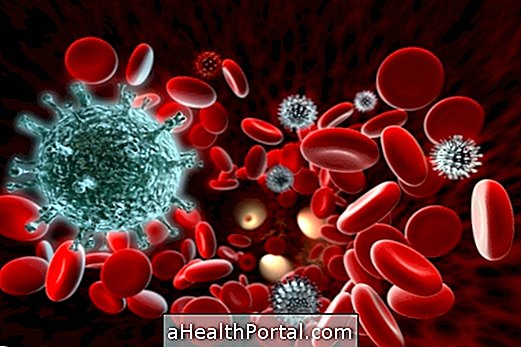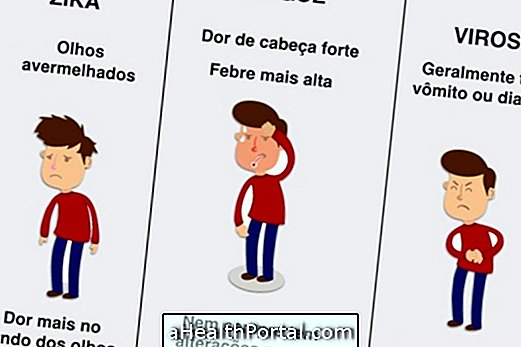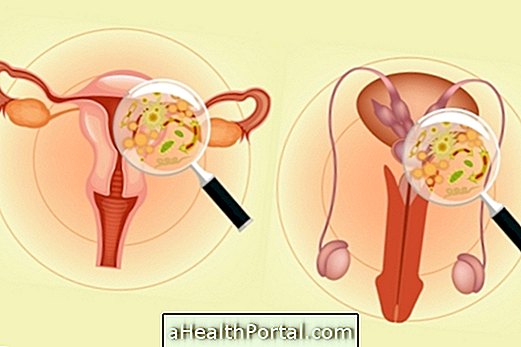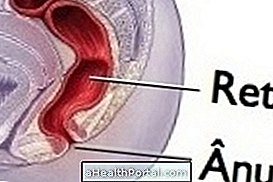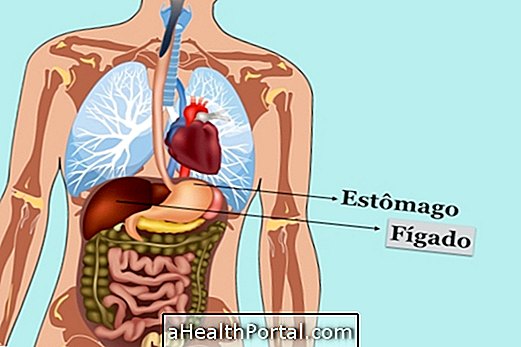Dogs can transmit some diseases to humans when they are not properly treated. Major diseases transmitted by dogs include:
- Ringworm : It is transmitted by direct skin contact with the contaminated animal. It causes a reddish patch on the skin and intense itching and should be treated with the use of antifungal or antifungal agents;
- Leptospirosis : Is transmitted by contact with the urine of the infected animal or by floods. This disease is severe and causes headache, leg pain and compromises the liver, and should be treated with the use of antibiotics;
- Lyme disease : It is transmitted by the tick bite, present in domestic animals and can cause intense itching and a red or whitish spot on the skin, its treatment can be done with the use of antibiotics;
- Ancylostomosis : It is a type of verminose present in the feces of dogs and cats, that can affect the human when it goes barefoot. The worm penetrates the skin usually in the area of the feet, buttocks and back, and causes anemia;
-
Anger : It is transmitted by the bite of a dog contaminated with rabies and is characterized by an inflammation in the nervous system that can cause paralysis of the limbs. Although dogs are often, it can also be transmitted by cats, bats and raccoons;
Capnocytophaga canimorsus : is a type of bacteria that is present in the mouth of some dogs and that can be transmitted by bite or contact of a wound with the saliva of the animal. Although the infection is rare, when it does, it can affect the whole body, putting life at risk for up to 24 hours.
In addition, even though the flea bite of well-cared animals may not transmit disease, it can cause a lot of discomfort in the skin. Usually this type of bite causes a small red spot on the skin with the whitish center that itches a lot. Although no specific treatment is necessary, the skin should always be kept clean and, if discomfort is severe, consult the doctor to apply a corticoid ointment, for example.

When to go to the vet
Sometimes dogs can lick or bite for several minutes at a time, and this can be a sign of skin parasites, allergies, hormonal imbalances or even a need for affection. But it's always good to investigate. In this case, take it to the veterinarian to make sure that it is not a disease that can contaminate humans as well.
Another very characteristic sign, which may indicate the presence of intestinal worms in the dog, is when the animal sits on the ground and crawls to scratch.
Tips for avoiding dog-borne diseases
Some helpful tips to avoid dog-borne diseases are:
- Take good care of the dog, vaccinating it and taking it to the veterinarian whenever it presents any change in hair, skin or behavior;
- Bathing the dog once a month or every 2 months;
- Apply a flea or tick remedy, as directed by the veterinarian;
- Have a bowel deworming every 6 months, or as directed by the veterinarian;
- Have good hygiene practices such as washing hands with soap and water after playing and playing with the dog;
- Do not let the dog lick its wounds or its mouth;
- Properly clean the place where the dog lives.
- Be careful when handling the animal's faeces, using gloves or a plastic bag when you pick them up, throwing the feces in the trash or the toilet, and then wash your hands afterwards.
The veterinarian should be consulted regularly, as some diseases may not cause any immediate changes in animals, but may be transmitted to humans. Children and individuals with the compromised immune system are usually the most affected, so stay tuned.
Here's how to wash your hands properly after handling the stool:


